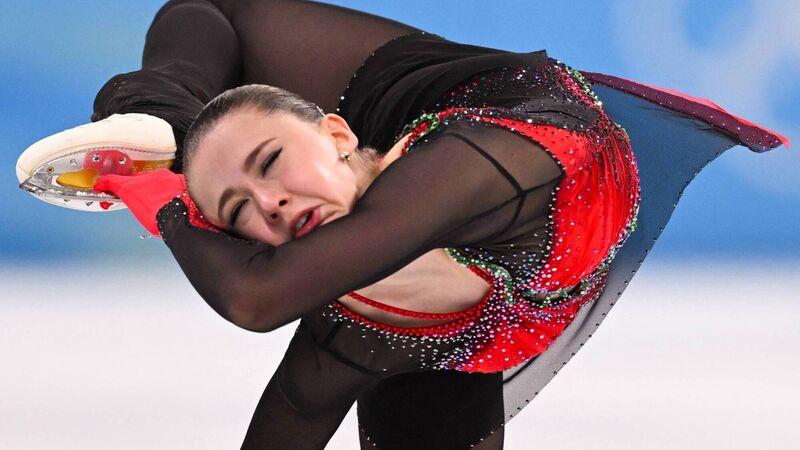John Riordan: Ice storm intrigue in Beijing leaves skaters feeling cold

Russia’s Kamila Valieva competes in the women’s single skating free skating at the Capital Indoor Stadium in Beijing yesterday.
Americans look at you bemused when you tell them you didn’t grow up skiing and they can’t fathom a world where the quadrennial Winter Olympics are anything but a rite of passage.









